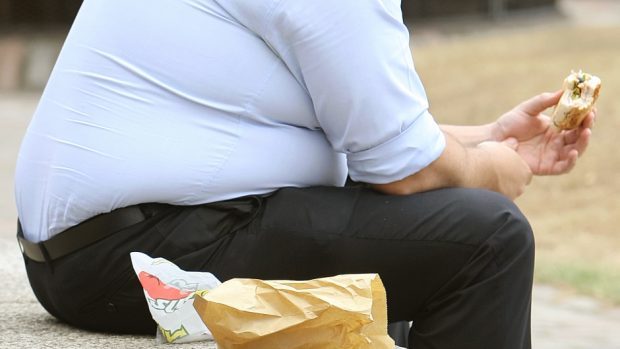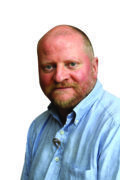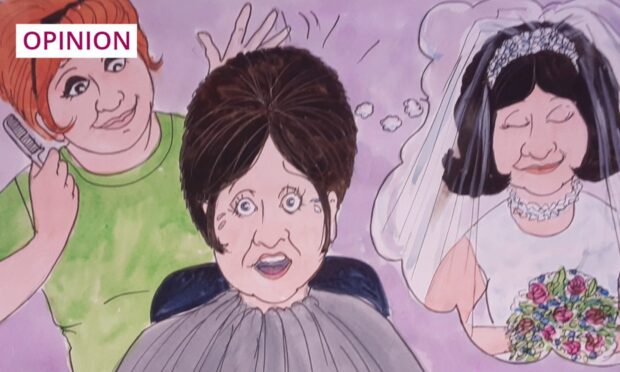Nobody smokes indoors nowadays. It is a dying habit. Easy then to forget that it was class war not so long ago.
“I just do not think the worst problem on our sink estates by any means is smoking, but it is an obsession of the learned middle class…What enjoyment does a 21-year-old single mother of three living in a council sink estate get? The only enjoyment sometimes they have is to have a cigarette.”
John Reid’s view of the proposed smoking ban in 2004 was shocking. He was UK health secretary at the time. It lingers on in our views on obesity.
“We now know that obesity increases the risk of developing more severe illness, likelihood of hospitalisation, ICU admission and death from Covid-19.”
That’s the view of Obesity Action Scotland, who add: “The gap in obesity prevalence between children living in the least and most deprived areas of Scotland has risen from 7% in 2018, to 12% in 2019.”
Fat is a fairness issue – the poorer you are, the more likely you’ll be overweight. It’s not just Covid that comes after the obese.
“The newest Global Burden of Disease evidence showed that obesity is a lead cause of increases in ill health and diet is the third largest cause of death,” say Obesity Action.
Yet there is something untouchable about the fat thing. As “fat shaming” it is obviously unpleasant.
I recall the moment, as a smoker, when cigarettes ceased to become a thing of taste but a stigma. In the early 1990s what seemed like an American rudeness towards smoking took hold here. Shame was involved – the weakness of the smoker, the selfishness of adding carcinogenic particles to the air.
Currently we are unable to see obesity as we saw smoking. Physical largeness equates to lack of choice (Reid’s idea of the only comfort) or to victimhood (another means to discriminate). Which is a real problem for Scots.
We eat three times more sugar than recommended, two thirds of adults are overweight and 29% of children are obese. Want to know why we die young while spending so money much on health? It’s there, in the can of juice and the crisp packet.
As with smoking, we also know there has been a corporate conspiracy to hook us on sugar and fats. We are not fat from essential eating, but by the consumption of pleasure foods and portions.
Smoking we publicly stigmatised; obesity we privately judge. It must be the next great health campaign, after smoking and drinking. It is killing us to pretend not.
Which is why it was so sad that when the SNP announced free meals for primary kids throughout the year, no mention was made of the kind of food provided.
The government set up the Social Renewal Advisory Board to collect the lessons of Covid and apply them in future. It asked: “What needs to change to build a Fairer Scotland, learning from the response to the Covid pandemic?”
Obesity Action Scotland answered: “… to build a Fairer Scotland we need to reduce obesity rates in the whole population, with extra support for those living in deprived areas, through improvements in diet.”
This means porridge for breakfast, not sugary cereal. It means no juice, ginger or pop. It means raising a generation utterly different. No crisps, chips, buttery rolls, chocolate.
Brutal, tough and unforgiving. Just as the ban on smoking was, and as the war of bevvy should be.
There is no room for the notion that weans need cheap food because it’s what they are used to. No role for the mammies who would sneak chips through the school railings. The child raised on sugary pulp will die sooner, will be more likely to experience disease and viruses more seriously, than the child fed a balanced diet.
This isn’t a culture war. There is no need to defend Irn-Bru as something preciously Scottish, or the Lorne sausage like it was the stone of destiny. We’ll not be less Caledonian for cutting out the poke of chips.
We might though be a bit healthier, live a bit longer and better protect the NHS which has been exhausted by the obesity pandemic for years.
That requires we overcome a class squeamishness about obesity. The middle class were less likely to smoke than the working class. Arguably, the fight against smoking came from middle class professionals. That doesn’t invalidate the benefit.
So health professionals, government officials and the chattering classes lead the fight against bad food, with their organic boxes and passion for kale. That might make them irritating and smug, but they are not wrong.
And then we must overcome the shaming/victim dynamic. Losing weight is very hard as is changing bad habits – I’m fatter than I should be. Teaching good habits to the next generation is much easier. Our focus must be on the young.
So it is a pity that the SNP conference announced a new policy in response to footballer Marcus Rashford’s campaign for school meals at all times of year, rather than the evidence submitted to its own call. We still await our champion of scran.











